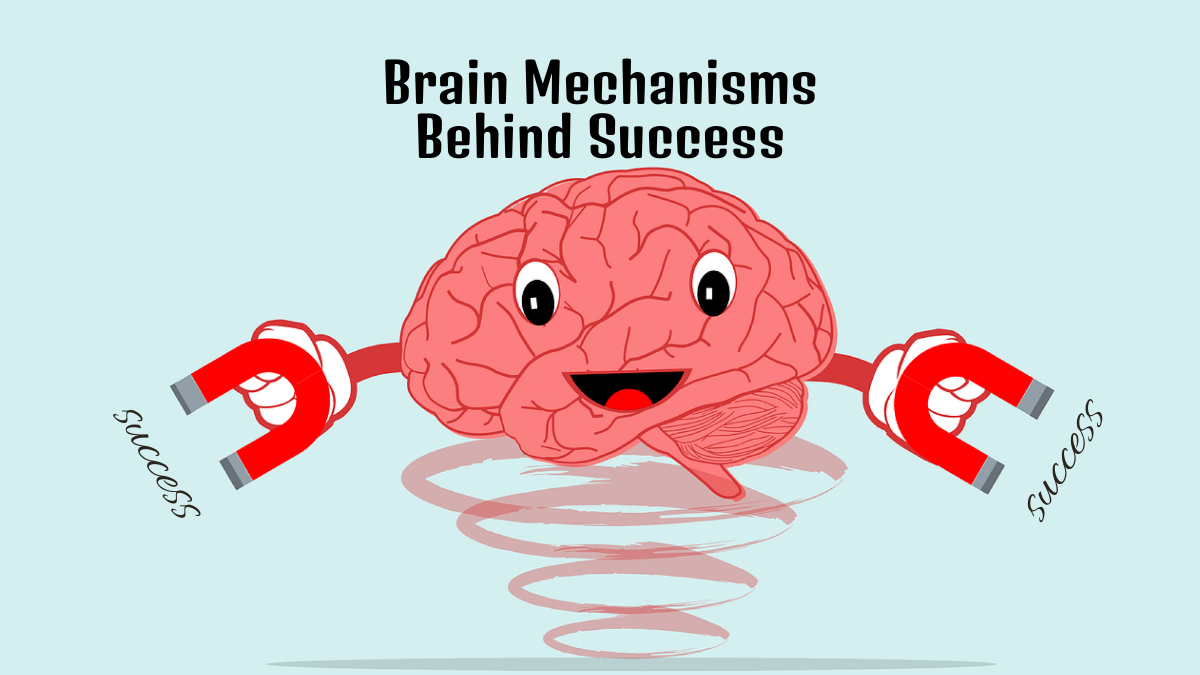Table of Contents
Success is a multifaceted concept that has intrigued humanity for centuries. Whether it’s achieving personal goals, excelling in career endeavours, or mastering a skill, success is often seen as the pinnacle of human achievement. However, the path to success is rarely straightforward, and it is influenced by a myriad of factors, including genetics, environment, and individual traits. At the core of this intricate process lie the brain mechanisms that drive our pursuit of success. In this blog, we delve into the fascinating world of neuroscience to explore how the brain contributes to success and what insights it offers into human achievement.
“Success is stumbling from failure to failure with no loss of enthusiasm.” – Winston S. Churchill
Understanding Success
Success is a complex phenomenon that encompasses various domains of life, such as academic achievement, professional success, interpersonal relationships, and personal fulfilment. While the definition of success may vary from one individual to another, certain underlying principles govern the mechanisms that lead to it.
One of the key components of success is goal-setting. Setting specific, challenging, and achievable goals is essential for driving motivation and guiding behaviour toward desired outcomes. The brain plays a crucial role in this process, primarily through the prefrontal cortex, which is involved in decision-making, planning, and goal-directed behaviour. Studies have shown that individuals with well-developed prefrontal cortex function tend to exhibit higher levels of goal orientation and are more likely to succeed in achieving their objectives.
Moreover, success is closely linked to the brain’s reward system, which is mediated by neurotransmitters such as dopamine. When we accomplish a task or reach a milestone, our brain releases dopamine, signalling pleasure and reinforcing the behaviour that led to the achievement. This positive reinforcement mechanism motivates us to pursue further success and reinforces the neural pathways associated with successful outcomes.
The Role of Neuroplasticity
Another critical aspect of success is neuroplasticity, the brain’s ability to reorganize and adapt in response to experiences and environmental stimuli. Neuroplasticity underlies our capacity to learn new skills, acquire knowledge, and refine our abilities over time. Through repeated practice and learning, neural connections are strengthened, and new pathways are formed, facilitating mastery and expertise in various domains.
For instance, studies have demonstrated that individuals who engage in deliberate practice—a focused and systematic approach to skill development—experience structural and functional changes in the brain that enhance performance. Areas responsible for sensory processing, motor coordination, and cognitive functions undergo adaptations, leading to improvements in skill acquisition and proficiency.
Furthermore, environmental factors play a crucial role in shaping neuroplasticity and, consequently, success. Enriched environments characterized by intellectual stimulation, social interaction, and novelty promote neuroplasticity and foster cognitive development. On the other hand, adverse environments marked by stress, deprivation, and lack of opportunities can hinder brain plasticity and impede success.
Emotional Intelligence and Social Dynamics
In addition to cognitive abilities and neurobiological factors, emotional intelligence (EQ) plays a significant role in determining success. EQ encompasses the ability to recognize, understand, and manage one’s own emotions as well as those of others. Individuals with high emotional intelligence are better equipped to navigate social interactions, build rapport, and resolve conflicts effectively—all of which are crucial skills in various personal and professional contexts.
From a neuroscientific perspective, emotional intelligence is associated with the limbic system, particularly the amygdala and the prefrontal cortex. The amygdala, often referred to as the brain’s emotional center, plays a central role in processing emotions and generating responses to emotional stimuli. Meanwhile, the prefrontal cortex regulates emotional responses, exercises impulse control, and facilitates empathetic understanding.
Moreover, success is not solely determined by individual attributes but also by social dynamics and interpersonal relationships. The brain is inherently social, and our interactions with others influence our thoughts, emotions, and behaviours in profound ways. Networks of mirror neurons enable us to empathize with others, mimic their actions, and perceive their intentions, fostering cooperation, collaboration, and mutual support—all of which are conducive to success in both personal and professional domains.
Overcoming Challenges and Building Resilience
While success is often portrayed as a linear progression toward predefined goals, the reality is far more nuanced. The journey to success is fraught with challenges, setbacks, and failures, all of which test our resilience and determination. How we respond to adversity and overcome obstacles is crucial in shaping our ultimate success.
From a neurological standpoint, resilience is associated with the brain’s stress response system, which encompasses the hypothalamic-pituitary-adrenal (HPA) axis and the limbic system. When faced with stressors, such as failure or criticism, the brain releases stress hormones like cortisol, triggering physiological and psychological reactions aimed at coping with the challenge. However, chronic or excessive stress can have detrimental effects on cognitive function, emotional well-being, and overall health, underscoring the importance of adaptive coping strategies and resilience-building techniques.
Studies have shown that resilient individuals exhibit greater flexibility in coping with stress, enhanced emotional regulation skills, and a more positive outlook on life. Moreover, practices such as mindfulness meditation, cognitive reframing, and social support have been found to modulate neural activity and promote resilience in the face of adversity.
Conclusion
In conclusion, success is a multifaceted phenomenon influenced by a myriad of factors, including cognitive abilities, neurobiological mechanisms, emotional intelligence, social dynamics, and resilience. The brain plays a central role in mediating these factors, orchestrating our thoughts, emotions, and behaviours in pursuit of success. By understanding the underlying brain mechanisms of success, we gain valuable insights into human achievement and unlock the potential for personal growth, fulfilment, and flourishing in all aspects of life.















